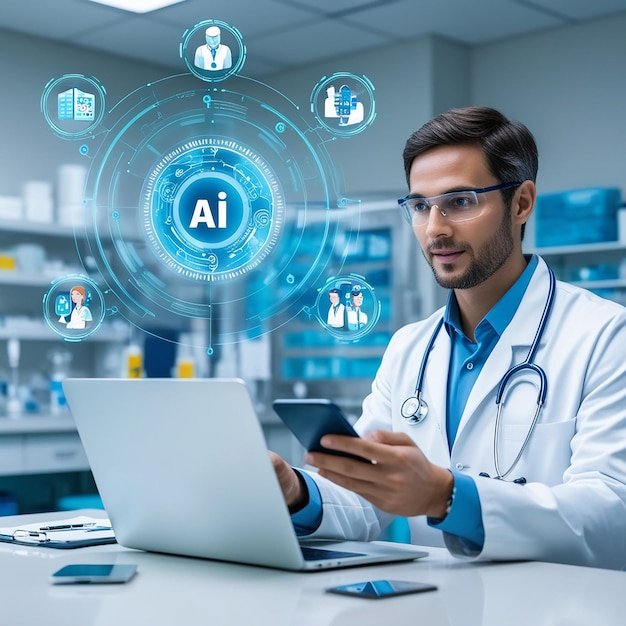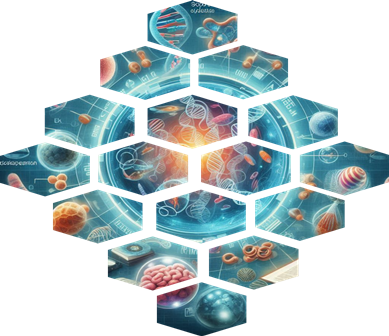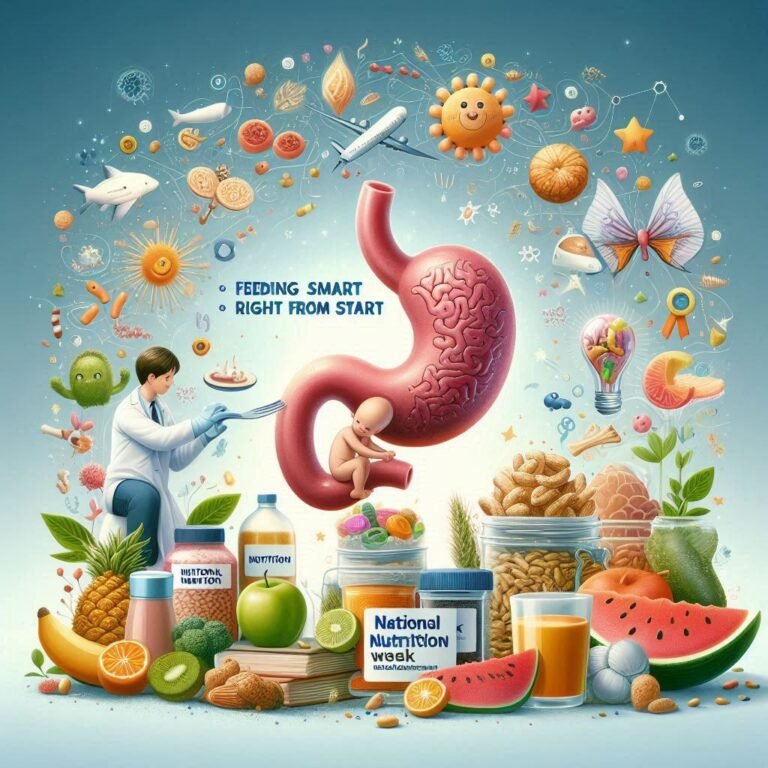Artificial intelligence (AI) is transforming numerous industries, and healthcare is no exception. AI technologies are being used to predict disease outbreaks and personalize treatment plans, thereby enhancing patient care significantly.
What is Artificial Intelligence in Healthcare?
Artificial intelligence refers to computer programs that can perform tasks that typically require human intelligence. In healthcare, AI is utilized to analyze large volumes of data and identify patterns that can enhance patient outcomes. AI can aid doctors, streamline hospital operations, and even assist with patient self-management. As technology advances, the role of AI in healthcare becomes increasingly crucial.
Improved Diagnostics
AI offers significant breakthroughs in diagnostics, especially in analyzing medical images like X-rays and MRIs. AI systems can process these images much faster and often with greater accuracy than humans. According to a study published in Nature, AI models can detect breast cancer more accurately than radiologists, reducing false positives by 50%. This means patients can receive quicker and more reliable diagnostics, potentially saving lives.
Personalized Treatment Plans
AI analyzes patient data to provide tailored treatments. Machine-learning algorithms can evaluate patient history, genetics, and lifestyle factors. For example, AI can suggest treatment options that are more likely to succeed for specific individuals, rather than following a one-size-fits-all approach. This customization can lead to better outcomes and increased satisfaction among patients.
Predictive Analytics
With predictive analytics, AI can forecast potential health risks by analyzing trends from diverse health datasets to detect patterns that may go unnoticed by humans. According to a report from McKinsey & Company, predictive analytics can reduce hospital readmissions by at least 15%, which significantly affects patient care continuity. These predictions can prompt early interventions and support in emergency cases, ultimately saving lives.”
Streamlining Administrative Tasks
Healthcare organizations frequently handle significant amounts of paperwork, which can detract from patient care. AI has the capability to automate these repetitive administrative tasks, resulting in more streamlined operations. For instance, AI can aid in appointment scheduling, billing management, and insurance claims processing. According to the American Medical Association, the use of AI can potentially save up to eight hours per week for each physician, allowing them to allocate more time directly to patient care.
Enhancing Clinical Trials
AI technologies are revolutionizing the way clinical trials are designed and conducted. They can identify suitable candidates for trials based on specific criteria and predict their responses to therapies. This is crucial, as getting a drug approved can often take years. By improving how trials are run, AI can bring new, vital medications to market faster, benefiting patients sooner.
Virtual Health Assistants
AI-powered virtual health assistants, such as chatbots, are increasingly prevalent in the healthcare industry. These tools are accessible 24/7, delivering prompt responses to patients’ inquiries and aiding with appointment reminders and medication management. For instance, a chatbot can assist users in addressing common health concerns or guiding them to professional resources. This offers a previously unavailable level of support and enhances overall patient engagement.
Telemedicine and Remote Monitoring
The use of telemedicine has increased significantly due to the pandemic, with AI playing a key role in enhancing this trend. AI tools are capable of monitoring patient vitals and providing insights that doctors can use to take action from a remote location. Platforms that incorporate AI in telemedicine can analyze data from wearable devices, reminding patients of their medication schedules and alerting care teams to potential issues. This emphasizes a more proactive approach to managing patient health.
Overcoming Healthcare Disparities
AI has the potential to minimize healthcare disparities by analyzing data from diverse populations to identify gaps in care and target areas needing more attention. According to a study by the National Institutes of Health, AI could help ensure that underrepresented groups receive effective treatments and address social determinants of health outcomes. Increased outreach and more tailored solutions could significantly impact overall health equity.
Ethical Considerations and Challenges
We love the benefits of AI, but its integration into healthcare must be accompanied by ethical considerations. There are concerns about data privacy, security, and bias that may exist within AI algorithms trained on specific data. Health organizations need to balance innovation with responsibilities. Transparent practices and ongoing evaluation will be vital in addressing potential imbalances.
Conclusion
Artificial intelligence is revolutionizing the healthcare industry in numerous compelling and impactful ways. Its effects range from enhancing diagnostics and customizing treatments to assisting with administrative tasks and extending the scope of telemedicine. As technology progresses, patient care will continue to improve, leading to healthier communities. Embracing AI ethically and responsibly will ensure that its benefits are experienced by society as a whole.






